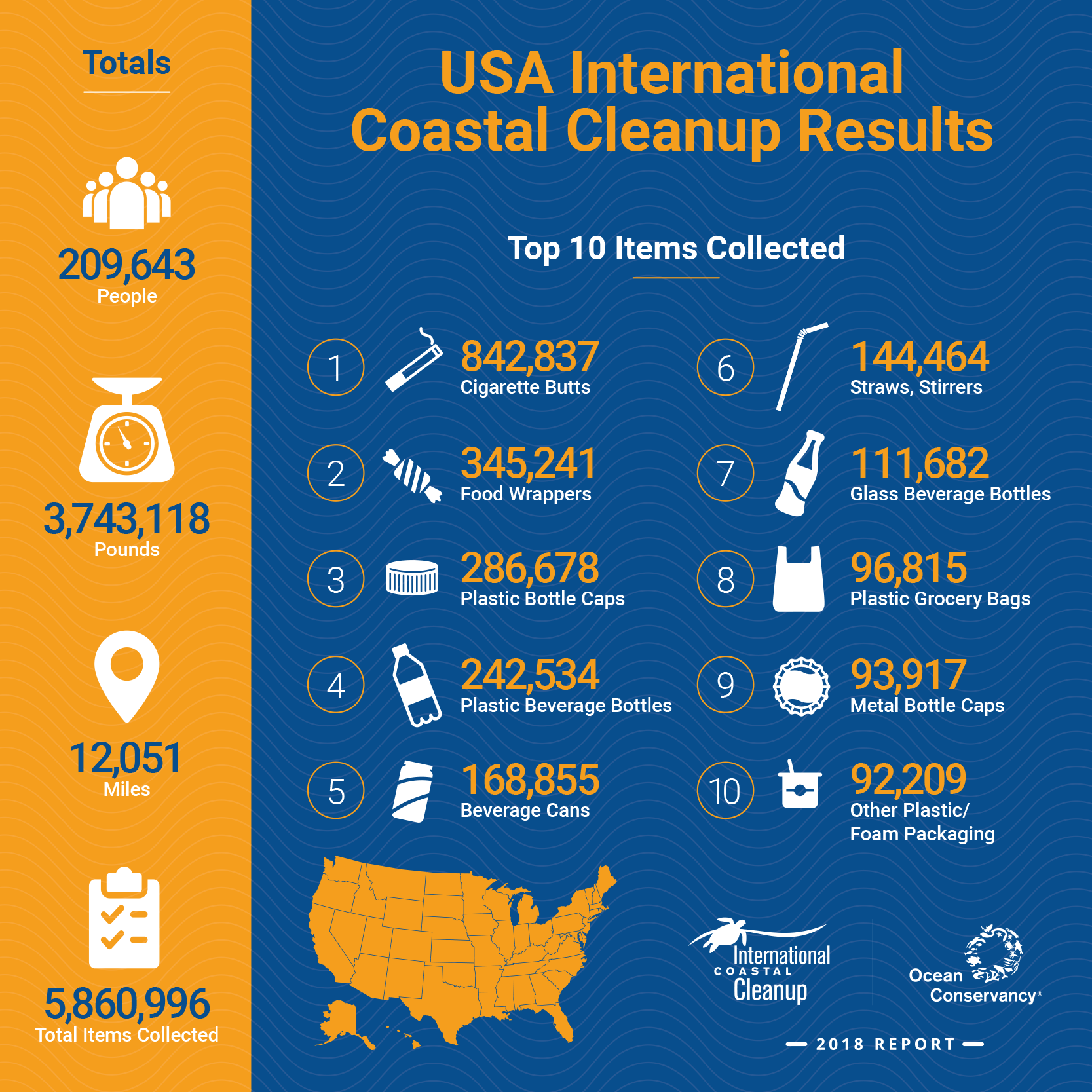

The
Ocean Conservancy released on Wednesday its International Coastal Cleanup (ICC) report, a compilation of litter collected from a one-day cleanup of beaches and waterways worldwide.
For the first time since the report’s inception more than 30 years ago, the 10 most common items picked up by volunteers around the world were made of
plastic. Foam takeaway containers booted glass beverage bottles from this year’s list.
“Over the years, we have seen plastics creeping into the top-10 list, displacing items like rope, beverage cans and paper bags,” said Nicholas Mallos, director of Ocean Conservancy’s
Trash Free Seas program, in a statement provided to EcoWatch. “But this is the first year that all ten of the top-10 items collected are made of plastic. Given that plastic production is rising, this could be the start of a long and troubling trend.”
During last year’s International Coastal Cleanup Day, which is observed annually on the third Saturday in September, nearly 800,000 volunteers in more than 100 countries collected nearly 20.5 million pounds of trash.
Participants found that cigarette butts—a repeat top offender on the ICC list—were the most littered item, with approximately 2.4 million collected. Food wrappers (1.7 million pieces), drink bottles (1.6 million), bottle caps (1.1 million) and grocery bags (757,523) round out the top five.
Ocean Conservancy
Each piece of debris is logged into Ocean Conservancy’s Ocean Trash Index, the world’s largest database on marine debris, a valuable snapshot of the world’s growing plastic problem.
“What sets the ICC apart is our emphasis on data collection,” said George Leonard, Ocean Conservancy’s chief scientist in a statement, “and data are critically needed if we are to find meaningful solutions to the ocean plastic crisis.”
Since about 1950, humans have created more than 8.3 billion metric tons of new plastics. Unfortunately, a lot of that plastic ends up in the world’s oceans. An estimated 8 million metric tons of plastic leaches into our seas each year. This debris has negatively impacted more than 800 species of marine animals, a UN report found.
Ocean Conservancy
Plastic also never fully biodegrades; it just breaks up into smaller and smaller pieces. These
microplastics, which get gobbled up by plankton and fish and work its way up the food chain, have been found in all corners of Earth. A recent Greenpeace expedition to Antarctica turned up microplastics in more than half of ocean water samples taken in the world’s southernmost waters.
While the growing international effort to
ban single-use plastics is crucial in curbing use of the material, beach cleanups are important because they directly stop the flow of plastics from entering our precious waters.
As Allison Schutes, associate director of Ocean Conservancy’s Trash Free Seas program, puts it, “Every item of debris removed is one less item putting ocean wildlife at risk.”
This year’s International Coastal Cleanup will be held on Sep. 15.
Click here to find a cleanup near you.
Infographic: How the Oil Industry Is Pushing Plastic https://t.co/pPU5jFBRGk @wwwfoecouk @GreenpeaceUK
— EcoWatch (@EcoWatch) June 27, 2018

 233k
233k  41k
41k  Subscribe
Subscribe 

